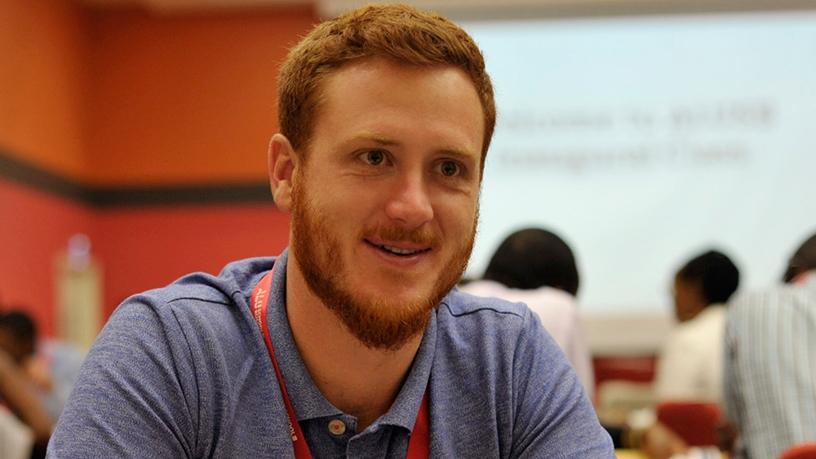
The African Leadership University (ALU), in partnership with General Electric (GE), has introduced what is claimed to be the first of its kind post-graduate programme in industrial Internet.
According to ALU, the Africa Industrial Internet Programme (AIIP) aims to upskill recent graduates and working professionals within the fields of power, oil and gas, transportation, and manufacturing to prepare them for the impact of Industry 4.0 - also known as the Fourth Industrial Revolution.
The year-long programme, launched in Johannesburg yesterday, helps participants to develop the right skills for building applications for the industrial Internet.
"The programme was designed to address a skills demand for a digital-savvy workforce in increasingly data-driven industries," explains Adam Collier, director of the AIIP at the African Leadership University.
"It has seven modules: Python coding and statistics; data analytics and visualisation; machine learning; big data; innovation and intrapreneurship; application development and digital for industries.
"Participants will learn how to build applications on the cloud that can leverage industrial big data, Internet of things (IOT) and machine learning to increase operational efficiency, cut costs and grow revenue for their business."
The programme, which started on 15 January throughout the African continent, offers a blended model with seven online modules, six in-person sessions and two online sessions (two days).
One of the challenges faced by local organisations, Collier adds, is that few professionals in the manufacturing and industrial sector have the skills needed to extract, analyse and use data to create lasting value for the business.
"Today, there exists a wealth of data unlike ever before - 2.5 quintillion bytes of data is created every day (this equates to four trillion books that if stacked would reach the moon and back). The main problem faced by local organisations is the inability to extract and fully leverage data that industry produces every day and use it for decision-making," Collier points out.
The programme facilitators range from tenured digital industrial professionals, to data scientists, engineers and statisticians, adds Collier. GE acts as the subject matter expert, providing technical knowledge and experience from the development of the curriculum to the delivery of modules.
Richard Sharod, Africa and Middle East regional director at Stratus Technologies, believes that while the awareness around the industrial Internet of things (IIOT) continues to gain momentum across industry sectors, adoption is still in its infancy.
"Although most of those working in industry are aware of IIOT, industrial organisations have very little understanding of how IIOT-ready their operations really are. By measuring their current level of IIOT readiness, industrial organisations will be able to make informed decisions with regards to upgrading legacy systems in order to propel their operations into the exciting future of automation," he points out.
According to Umesh Sita, head of IOT and digital supply chain for SAP Africa, many companies are still piloting use cases in IIOT. Those that have already gone live have created a competitive advantage for themselves, he adds. In order for IIOT to be deployed on a larger scale, the price of reliable devices and connectivity needs to be made more affordable, notes Sita.
Last month, data science firm Predictive Insights introduced courses in machine learning, business intelligence and data analysis, to help organisations maximise the use of artificial intelligence (AI) to determine customer behaviour.
"Data science is still an emerging field and there are many buzzwords, like 'AI', 'big data' and 'machine learning' that get used often without any real understanding of how they can be implemented," says Rulof Burger, CEO and director of Predictive Insights.
"While most firms are good at collecting data, it is very rare that this data is exploited to its full potential. One of the objectives with all our courses is to get individuals and firms to understand the true power of their own data."
Share